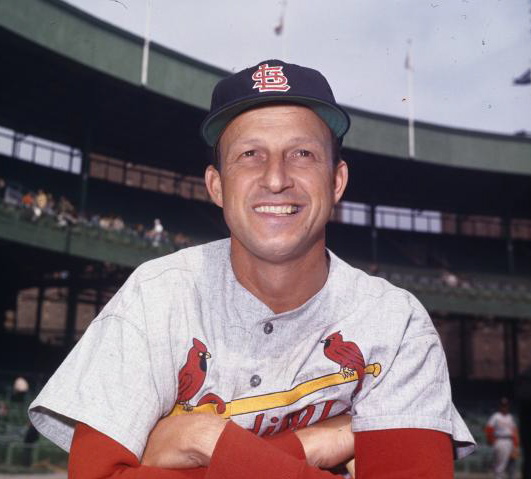 Cardinals Hall of Famer Stan Musial died on Saturday at his suburban St. Louis home. A cause of death was not immediately announced. Stan the Man was the second baseball icon to pass away in less than 24 hours. Hall of Fame manager Earl Weaver died Saturday morning.
Cardinals Hall of Famer Stan Musial died on Saturday at his suburban St. Louis home. A cause of death was not immediately announced. Stan the Man was the second baseball icon to pass away in less than 24 hours. Hall of Fame manager Earl Weaver died Saturday morning.
Musial won seven National League batting titles, was a three-time MVP, 20-time All-Star, and helped the Cardinals capture three World Series championships in the 1940s. He finished his career with a .331 batting average and 475 home runs, earning him first-ballot election to the Hall of Fame in 1969.
He retired in 1963 as the all-time National League leader in games, runs, hits, doubles and RBI. He became a team vice-president for the next 25 years. He also was general manager in 1967, when the Cardinals won the World Series.
In his best year, 1948, he had four five-hit games, hit 39 home runs and batted .376, best in the National League. He also led his league that year in runs scored (135), hits (230), total bases (429), doubles (46), and triples (18).
The only year Musial missed with the Cardinals was 1945, when he was in the U.S. Navy during World War II. He was based in Pearl Harbor.
Musial played nearly until 43rd birthday and he got a hit in his final at-bat, sending an RBI single past Cincinnati’s rookie second baseman Pete Rose, who would break Musial’s league hit record of 3,630 some 18 years later.
Widely considered the greatest Cardinals player ever, the outfielder and first baseman was the first person in their team history to have his number retired.
In addition to his excellence, Musial was clearly St. Louis’ most popular player. He was so revered that Albert Pujols, while playing the for Cardinals, resisted the nickname “El Hombre,” Spanish for “The Man,” calling it disrespectful to Musial.
Dodgers pitcher Preacher Roe once joked about how to handle Musial: ”I throw him four wide ones and then I try to pick him off first base.”
Unlike Enos Slaughter and other Cardinal teammates, he was supportive when the Dodgers’ Jackie Robinson broke baseball’s color barrier in 1947. Bob Gibson, who started out with the Cardinals in the late 1950s, would recall how Musial had helped established a warm atmosphere between blacks and whites on the team.
“How good was Stan Musial,” legendary broadcaster Vin Scully once said, “He was good enough to take your breath away.”














